
James O'Brien 10am - 1pm
15 March 2023, 18:14 | Updated: 15 March 2023, 18:16
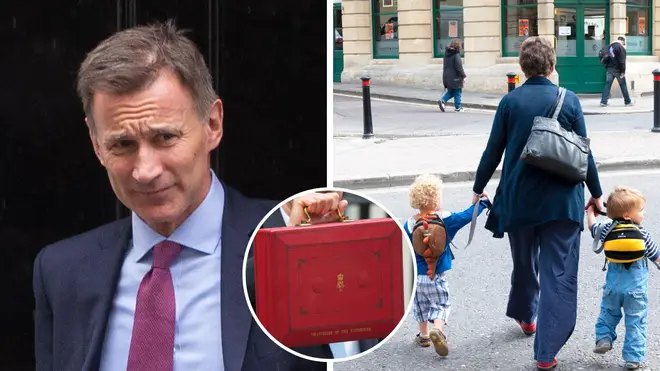
The Chief Secretary to the Treasury has tonight said the UK needs "several hundred thousand" more workers in light of Chancellor Jeremy Hunt's £4billion expansion of free childcare.
Speaking with Tom Swarbrick, John Glen highlighted that increasing the workforce can't be done "overnight" but would allow "parents to get back into work" following paternity leave.
"We need several hundred thousand," Mr Glen admitted when asked on the figures, adding: "This particular measure, we think, will give us sixty thousand."
It comes as Chancellor Jeremy Hunt announced a £4billion expansion of free childcare for one and two-year-olds in the Spring Budget in a bid to get parents back to work.
The Chancellor's plan is believed to include around 30 hours a week of childcare for parents in England with children in that age group.

Chief Secretary to the Treasury on the government's childcare plan
There could also be an increase in funding for the current childcare programme for three-year-olds.
It comes after a report by the Centre for Progressive Policy found that more than half of the mothers struggle to find suitable childcare.
One quarter, equivalent to one and a half million mothers in the real world, said if they had access to suitable childcare they would work more hours.
The research estimated that this would result in an increase in economic output of £27 billion per year, or 1% of GDP.
If confirmed, the expansion of childcare across England would form part of Mr Hunt's desire to increase the number of people in the workplace.
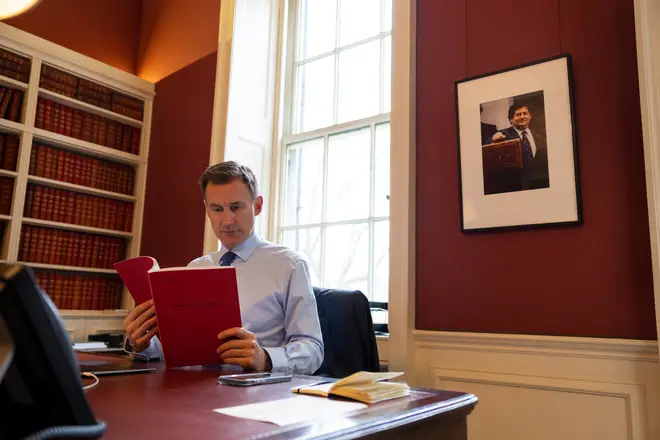
When pressed on the subject of childcare provision over the weekend, Mr Hunt said: "We would like to help everyone. It's expensive to do it. You can't always do everything at once."
But the Chancellor has come under pressure in recent weeks to act on childcare, which is seen to be among the most expensive in the world.
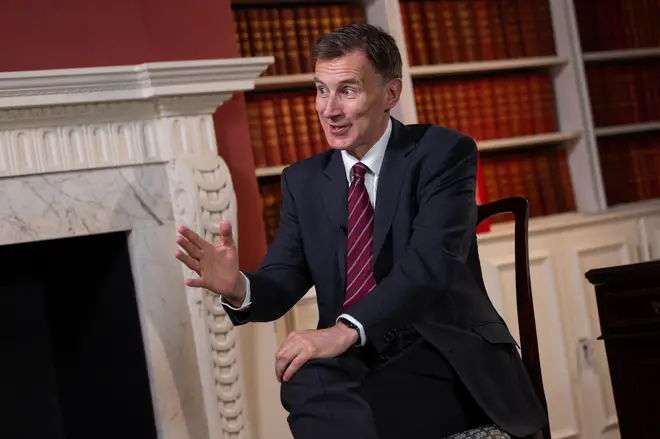
Labour has promised to completely overhaul the British childcare system, labelling it "broken", with Shadow Chancellor Rachel Reeves telling LBC's Iain Dale that her party would back a "serious" overhaul of the system.
"I can assure you if there is a serious package from the Chancellor tomorrow, we will support it because we know the system is broken," Ms Reeves told LBC.
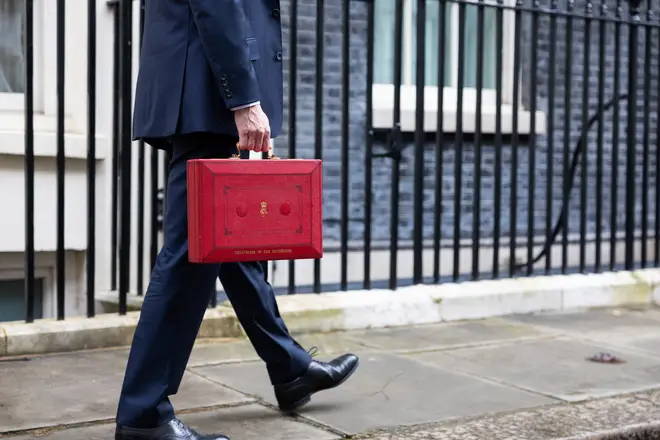
"We know it is a massive barrier for parents to go back to work - the number of parents, especially mums, who have said to me 'it doesn't even make sense for me to go to work because every penny that I'm earning after tax is going to someone else to look after my children."

Rachel Reeves reflects on the last Labour government's success.
Meanwhile, England's former children's commissioner Anne Longfield urged the government to invest in what has been described as a "broken" childcare system.
Ms Longfield, who is now chairwoman of the commmission on young lives, told LBC's Tonight with Andrew Marr last week that the UK's current childcare system is not "fit for purpose for the kind of demands that parents have".
"In other countries, the state and even employers pay a much higher proportion of those childcare costs but in this country, apart from funding for 3 or 4-year-olds…the parents top that up."
She continued: "We know most of childcare in this country is provided by private and voluntary organisations. that means they need to find income largely from parents."
Currently all families of three and four-years-old qualify for 15 hours of free childcare a week, over 38 weeks.
Households can qualify for 30 hours of free childcare a week if parents earn the equivalent of 16 hours a week at the national minimum or living wage.

Chief Executive of CentreProPolicy says economic gain of state-funded childcare outweighs its cost.
Mr Hunt will deliver his statement in Parliament on Wednesday March 15. The statement will come after PMQs at around 12.30pm.
Here are seven predictions for what the statement could contain:
Energy bills support
The Government’s Energy Price Guarantee, which caps energy costs for households, is scheduled to rise from £2,500 to £3,000 on April 1. The Chancellor is expected to keep it at that level for another three months, from April to July.From July, when the price guarantee ends, it's expected bills will fall to £2,000 as wholesale gas prices fall.
Pensions
The Chancellor is understood to be looking at increasing the lifetime pension allowance (LTA) to try to encourage more people to work for longer.
Jeremy Hunt is considering allowing workers to put more money into their pension pot before being taxed as part of his Budget package.
Mr Hunt is keen to bolster Britain's workforce as he looks to deliver on the Prime Minister's pledge of growing the UK's stalling economy.
The lifetime allowance currently stands at £1.07 million, with savers incurring tax after that personal pension pot threshold has been exceeded.
The Times said the Chancellor would hike it to £1.8 million, while The Daily Telegraph said it could be set to more than £1.5 million.
Getting long-term sick back to work
The Chancellor is reportedly planning a so-called ‘sick note crackdown’ - with a focus on getting long term sick people back into work with the support they need, rather than being signed off work.T
hey also want to change the benefits system so that sick people who work part time can still claim some sickness benefits.
Public sector pay
The government wants to strike deals to end the ongoing issue of strikes in public services.
They may look at coming back to unions with stronger pay deals for 2023/24 and it is widely expected that Mr Hunt will look at ways to drum up more cash to avert public sector walkouts.
Fuel duty cuts
In April, fuel duty will rise in line with RPI inflation, adding 7p to the price to a litre of fuel. The temporary 5p fuel duty cut announced by Rishi Sunak in March 2022 expires in March.
This means fuel is set to rise by an extra 12p per litre.It is expected Mr Hunt will step in to stop this to give motorists a further break at the pump - with continued cuts to fuel duty expected to cost the Treasury an estimated £6bn according to Deutsche Bank.
Corporation tax
Tax paid by businesses is expected to rise from 19% to 25% in April.
This hike was scrapped in Kwasi Kwarteng’s disastrous mini-Budget last September as part of a tax cutting spree that triggered an economic meltdown. The rise is expected to go ahead.
Cigarettes and Alcohol
The price of a pack of cigarettes is expected to rise by £1.15 in line with RPI at tomorrow’s Budget. However booze duty is expected to be frozen until August.
The chancellor is keen to bolster Britain's workforce as he looks to deliver on PM Rishi Sunak's pledge of growing the UK's stalling economy.
A key pledge of the Budget tomorrow is expected to be an increase to the lifetime pension allowance (LTA), which currently stands at £1.07 million, with savers incurring tax after that personal pension pot threshold has been exceeded.
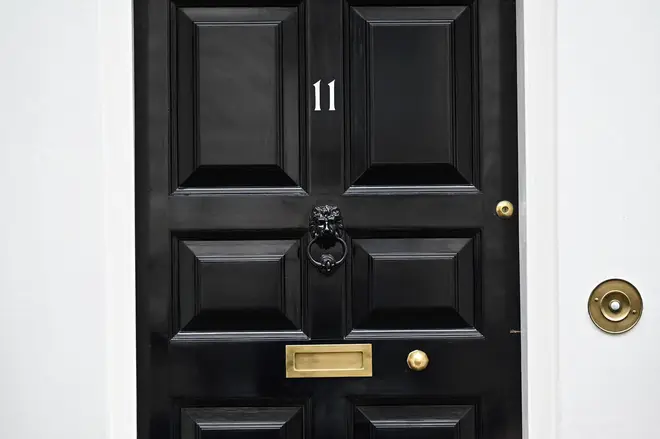
Read more: Spring Budget 2023 childcare: What will Jeremy Hunt say about childcare?
Read more: When is the Spring Budget 2023: Date, time and predictions
Mr Hunt vowed to consider fiscal measures that would help the over-50s who had taken early retirement during or after the pandemic to return to work during a speech earlier this year.
Speaking in January, he said employment levels were lower than they were before the coronavirus pandemic by around 300,000 people.
"So, to those who retired early after the pandemic, or haven't found the right role after furlough, I say: Britain needs you," Mr Hunt said."And we will look at the conditions necessary to make work worth your while."

Rachel Johnson says childcare should be a top priority in Jeremy Hunt's upcoming budget.
Hundreds of thousands of workers across several trade unions are walking out on Wednesday amid ongoing disputes over issues including pay, jobs, pensions and conditions.
Those striking include civil servants, teachers, junior doctors, university lecturers, London Underground drivers and BBC journalists.
Despite negotiations being held between unions and ministers, talks to the end the strikes have remained deadlocked.